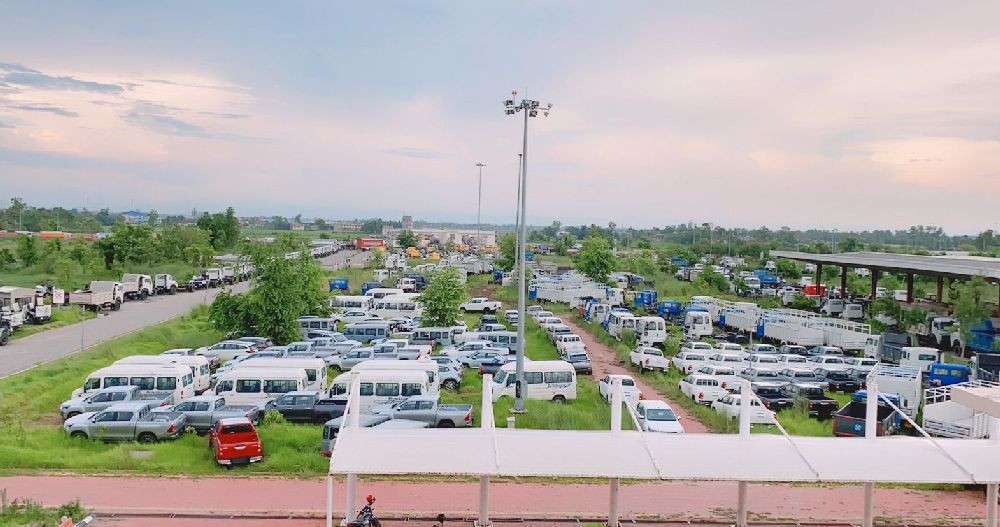Despite the easing of liquidity in the financial system lately, banks and financial institutions (BFIs) are yet to ease auto lending as borrowing interest rates are still persistently higher.
According to the Department of Customs (DoC), around 2,900 four-wheelers and their chassis have remained parked at the customs yards, particularly at Birgunj Customs Office, Inland Container Depot in Birgunj, and Bhairahawa Customs Office. According to DoC, these vehicles were imported based on the letters of credit (LCs) opened before the government imposed a ban on imports of various types of goods including automobiles in April 2022. “We've long been urging auto importers to get customs clearance for imported vehicles," said a DoC official. Clearance of these imported vehicles has been important for the government which is facing a resource crunch lately. Last week, the government not only decided to reduce its administrative expenditure by 20 percent but also asked the provincial and local governments to cut their similar expenses by an equivalent percentage citing that the government’s treasury has already been negative by Rs 90 billion. In early January, DoC urged the representatives of the NADA Automobiles Association of Nepal to clear the imported four-wheelers as the department has been under pressure from the finance ministry to boost customs revenue. The automobile dealers sought the abolition of restrictive measures against the import of the automobile. Particularly, they had complained about the central bank directive that made it mandatory for the importers of vehicles to deposit a 50 percent cash margin to open a letter of credit for importing the vehicles. In the third week of January, the Nepal Rastra Bank removed the provision on cash margin easing the automobile dealers to import new vehicles. Earlier, the government had lifted the ban on the import of vehicles along with foreign alcohol, and expensive mobile sets effective from mid-December last year. “Currently, the automobile dealers are not saying anything clearly about why they are delaying customs clearance of imported vehicles,” the DoC official said. But the dealers have hinted at the difficulty in getting auto loans as one of the major reasons behind the sluggish market demand for vehicles. Automobile dealers say while Nepal Rastra Bank did ease the process, they are not clearing the vehicles mainly due to two reasons - difficulty in getting auto loans and slow demand in the auto market. "The loan-to-value (LTV) ratio on auto loans is still 50 percent. Given the current situation, customers are not interested in buying vehicles under this arrangement," said Anup Baral, a member of NADA. According to him, interest rates on auto loans are still on the higher side. "99 percent of vehicles are purchased through auto loans. With higher interest rates and difficulty in getting loans, sales have plummeted to a record low," said Baral. The annual size of the passenger car market in Nepal is 18,000. "While automobile dealers across the country used to sell 1500 passenger cars monthly during normal time. This has come down to 150 currently," said Baral. With the automobile dealers not clearing the vehicle and their chassis imported from the customs yards for the last several months, DoC has warned the importers that the department would be forced to impose fines for the clearance delays. According to the customs rules, the goods deposited in customs go-down should be cleared within sixty days from the date of their registration at the customs office. As per the Customs Act 2007, if the owner of goods stored in a customs godown operated by the Customs Office does not get clearance and get delivery of such goods within the prescribed time limit, demurrage shall be charged as prescribed. Demurrage is a charge levied by the shipping line to the importer in cases where they have not taken delivery of the full container and moved it out of the port/terminal area for unpacking within the allowed free days. As per the customs rules 2007, the importer has to pay a charge of 20 paisa per day per kg up to thirty days, 40 paisa per day per kg from more than thirty days up to sixty days, and 60 paisa per day per kg charge for more than sixty days. The government expects a substantial revenue collection from the clearance of these imported vehicles. “We have estimated Rs 4-5 billion in revenue from the clearance of the vehicles,” said Dhakal. The automobile is among the largest revenue-generating sectors for the government. In the last fiscal year 2021/22, Rs 66.30 billion was collected in revenue from imports of four and two-wheelers. Even after the relaxation in import restrictions, the customs officials say there has not been any significant increase in revenue. Our target for revenue till mid-February is Rs 140 billion but we have been able to collect only Rs 87 billion,” said Dhakal.











